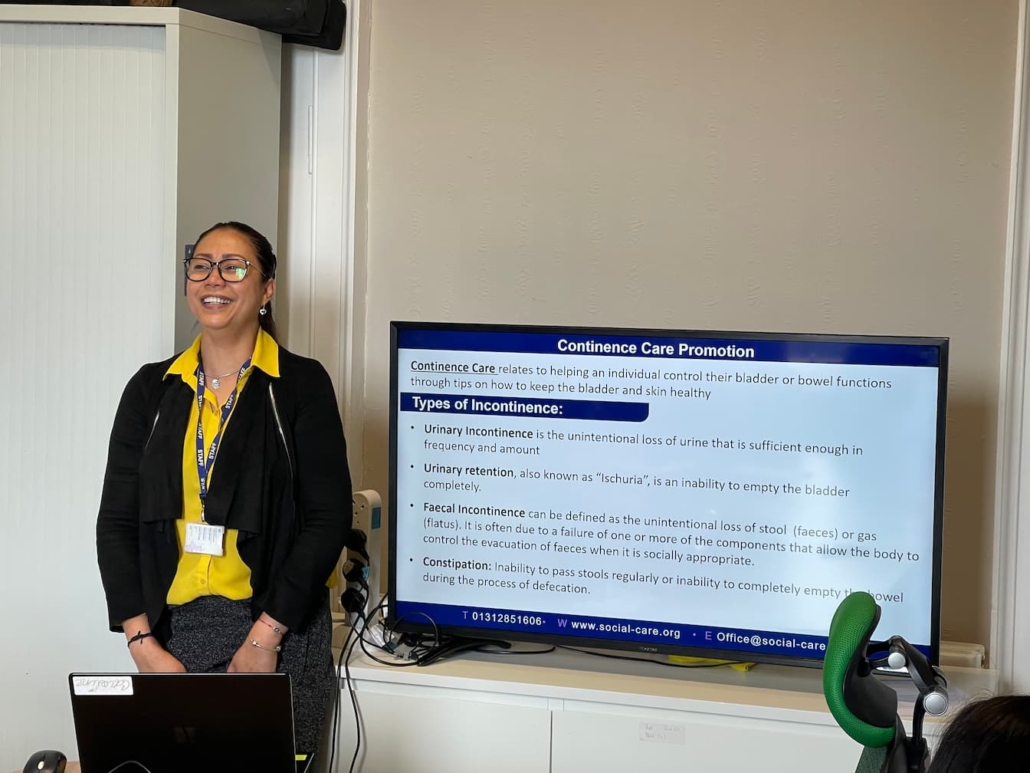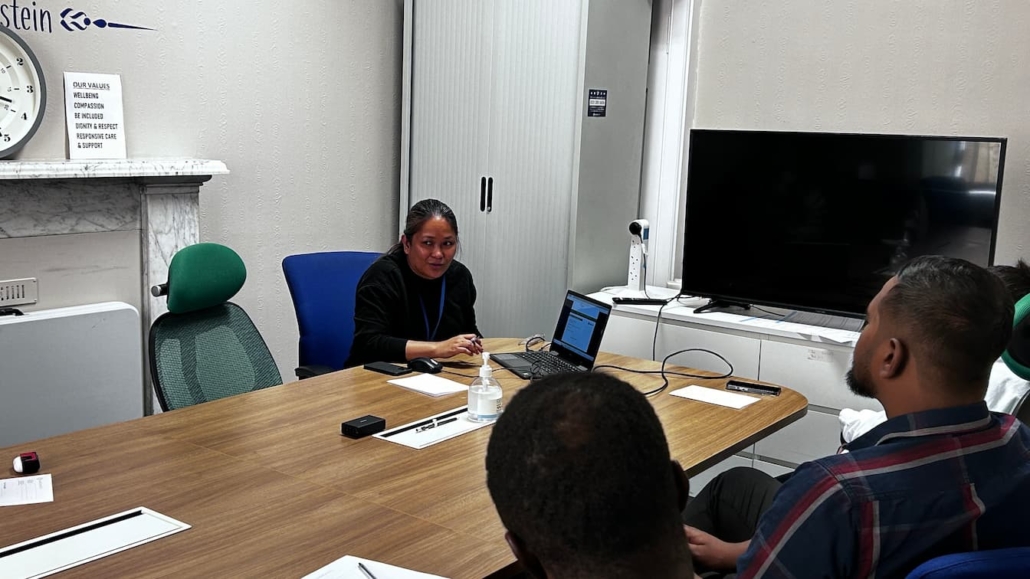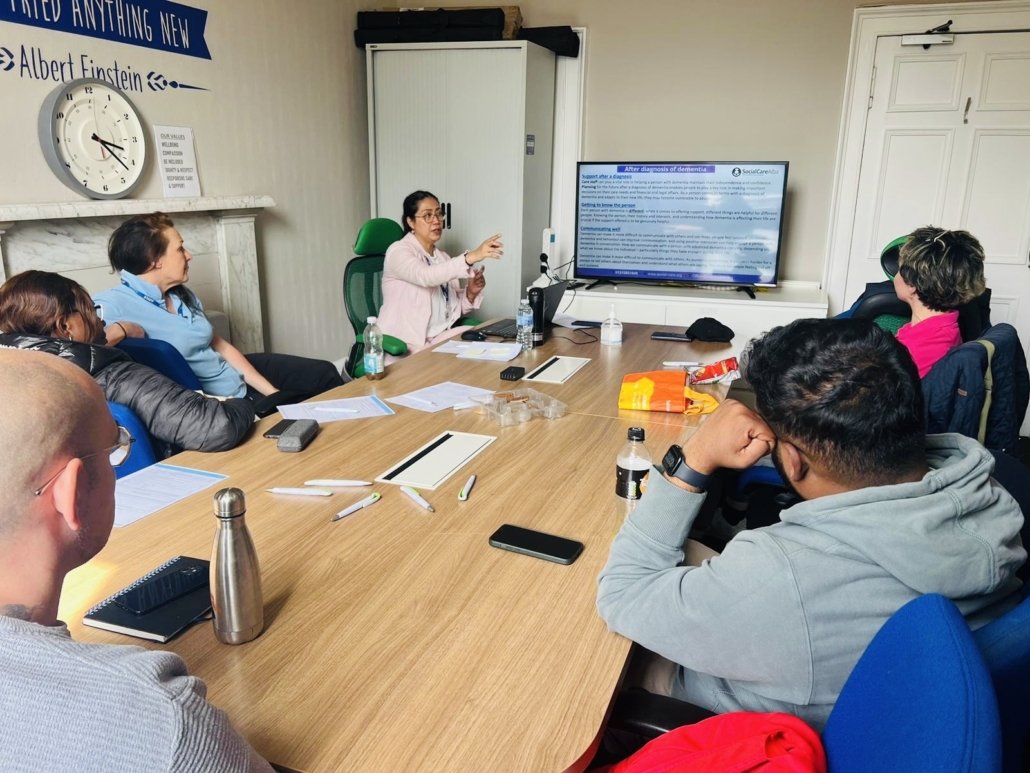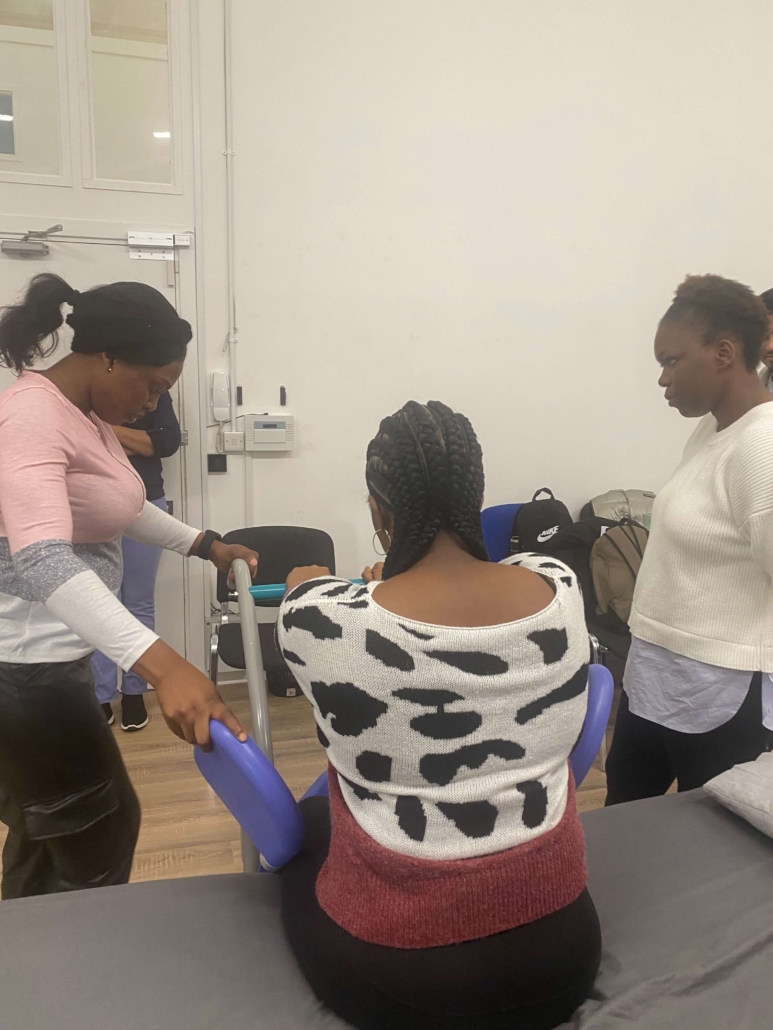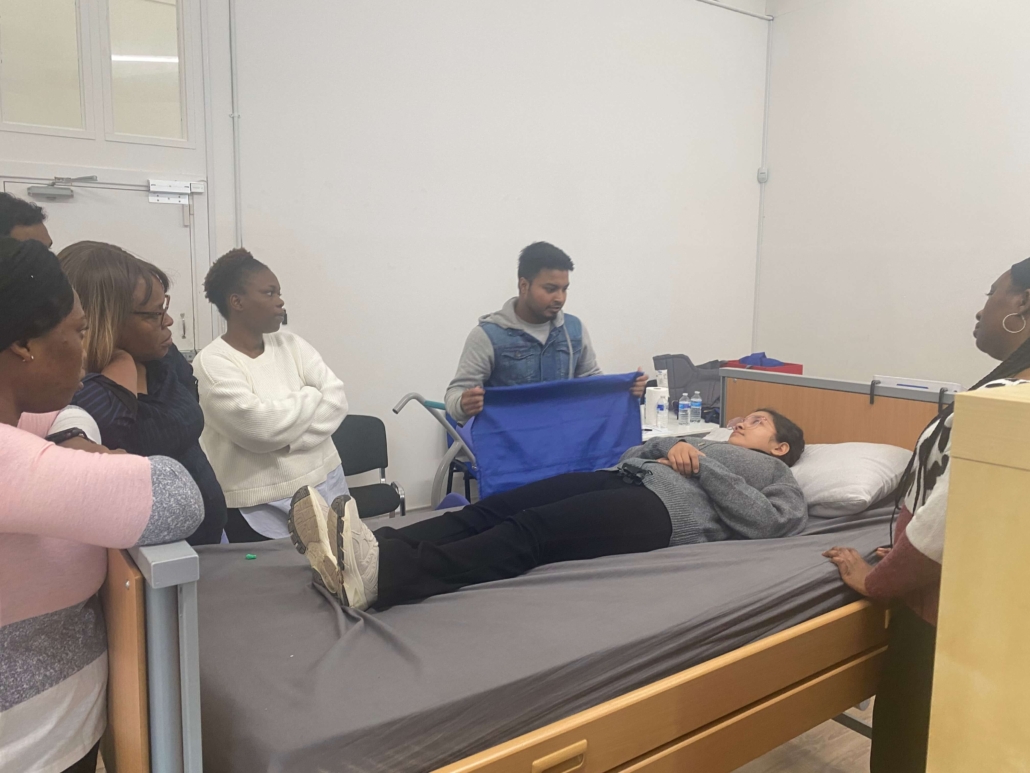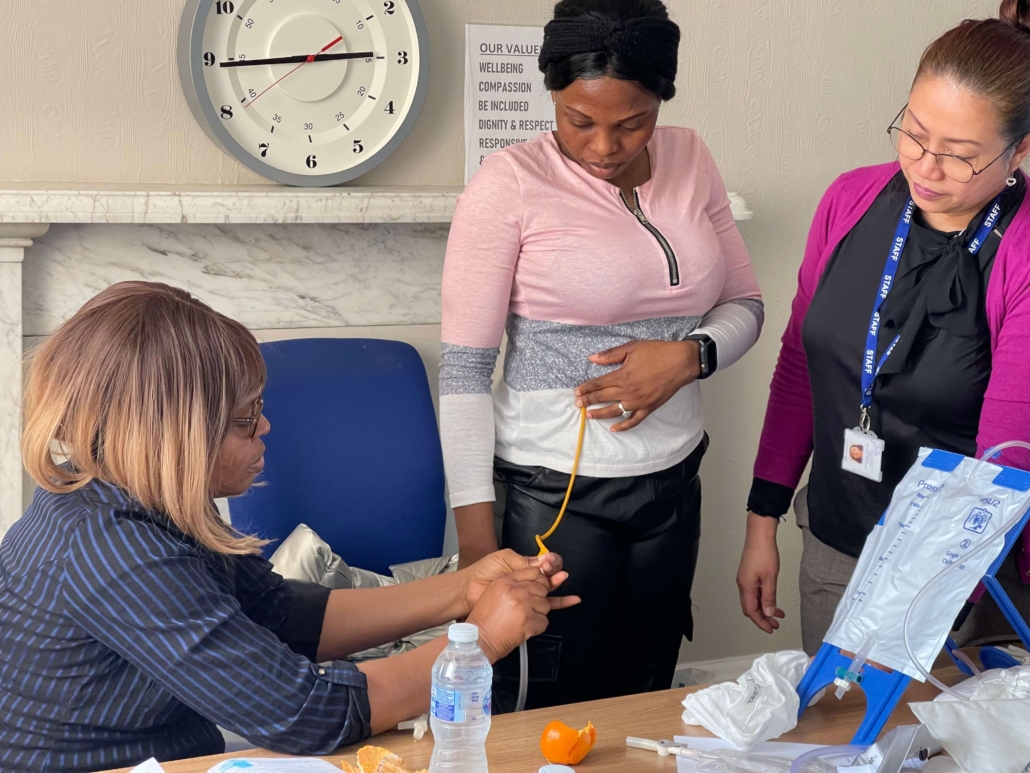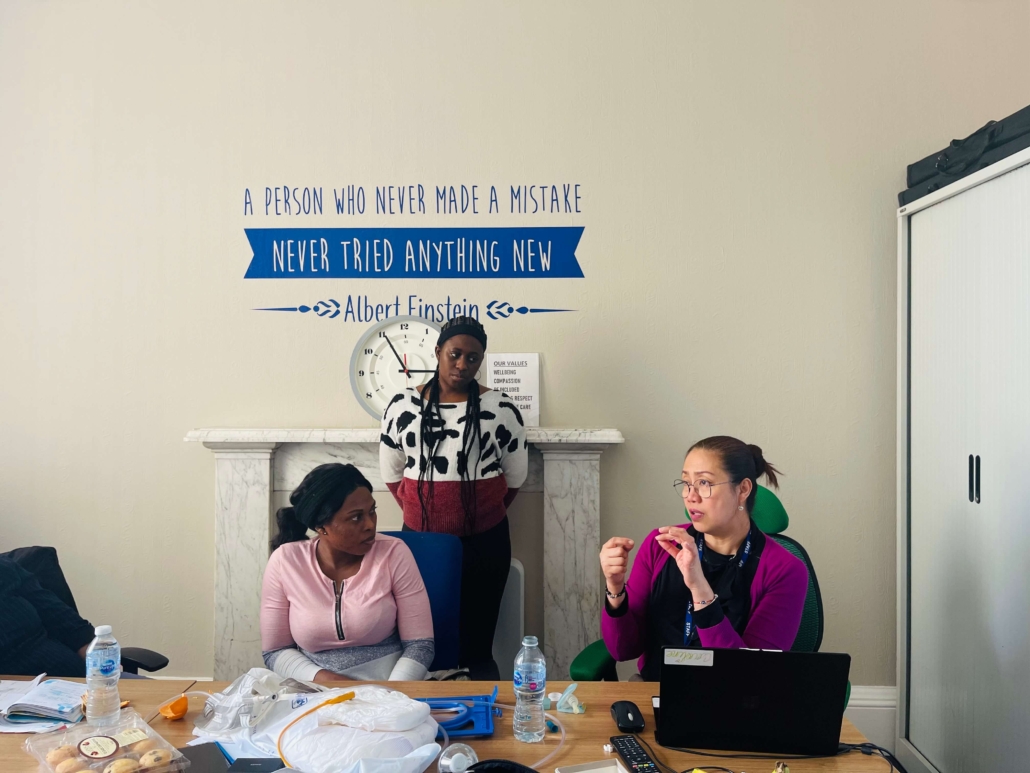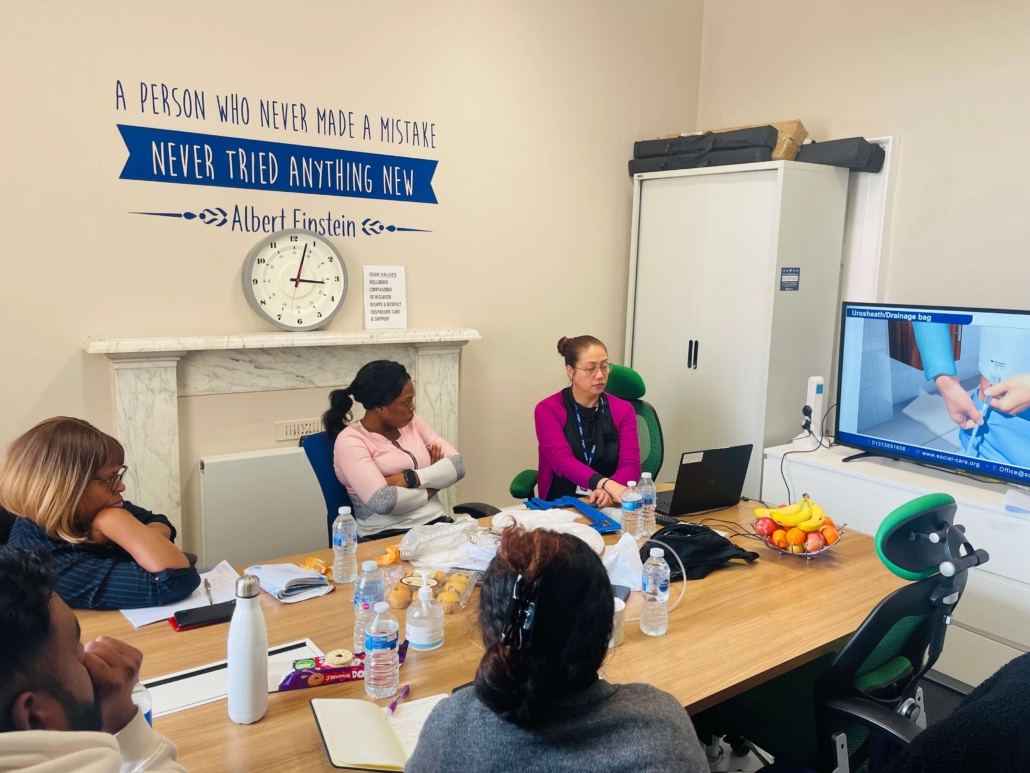Strengthening Dementia Care at Social Care Alba through Continued Education
We are delighted to announce that Caroline, Deputy Manager and our Dementia Lead, has successfully completed the Understanding Dementia MOOC (Massive Open Online Course). Developed by the Wicking Dementia Research and Education Centre at the University of Tasmania. This world-leading course is free, accessible, and open to anyone interested in dementia. Caroline’s achievement, alongside those of further key team members Matthew and Kome, who have also completed the course previously, further strengthens our commitment to delivering exceptional care to those we support.
Overview of the Course
Understanding Dementia consists of three key modules:

1: The Brain
Covering how the brain functions and the changes that occur in dementia, this module explores the various types of dementia and their causes, providing crucial insights into the challenges faced by those living with the condition.

2: The Diseases
This module focuses on the diseases that cause dementia, such as Alzheimer’s, vascular dementia, and Lewy body dementia. It provides essential knowledge on symptoms, progression, and the latest research to better manage these conditions.

3: The Person
Emphasising a person-centred approach, this module offers strategies for supporting the emotional and social well-being of individuals with dementia, focusing on maintaining their dignity and quality of life.
Course Delivery and Relevance
Delivered by global leaders in dementia research and education, the course is designed for a diverse audience, including those living with dementia, their families, caregivers, and healthcare professionals. It addresses the growing impact of dementia, a significant health, social, and economic issue of the 21st century, and explores treatments and care practices that enhance quality of life.
Impact on Our Dementia Care
As Dementia Lead at Social Care Alba, Caroline is committed to applying her new knowledge to improve the care we provide while also continuing her studies in Psychology. By promoting evidence-based practices and deepening staff understanding, she aims to ensure that every individual we support receives compassionate, personalised care.
We congratulate Caroline on this achievement and look forward to the positive impact it will have on our services and the lives of those we care for.

